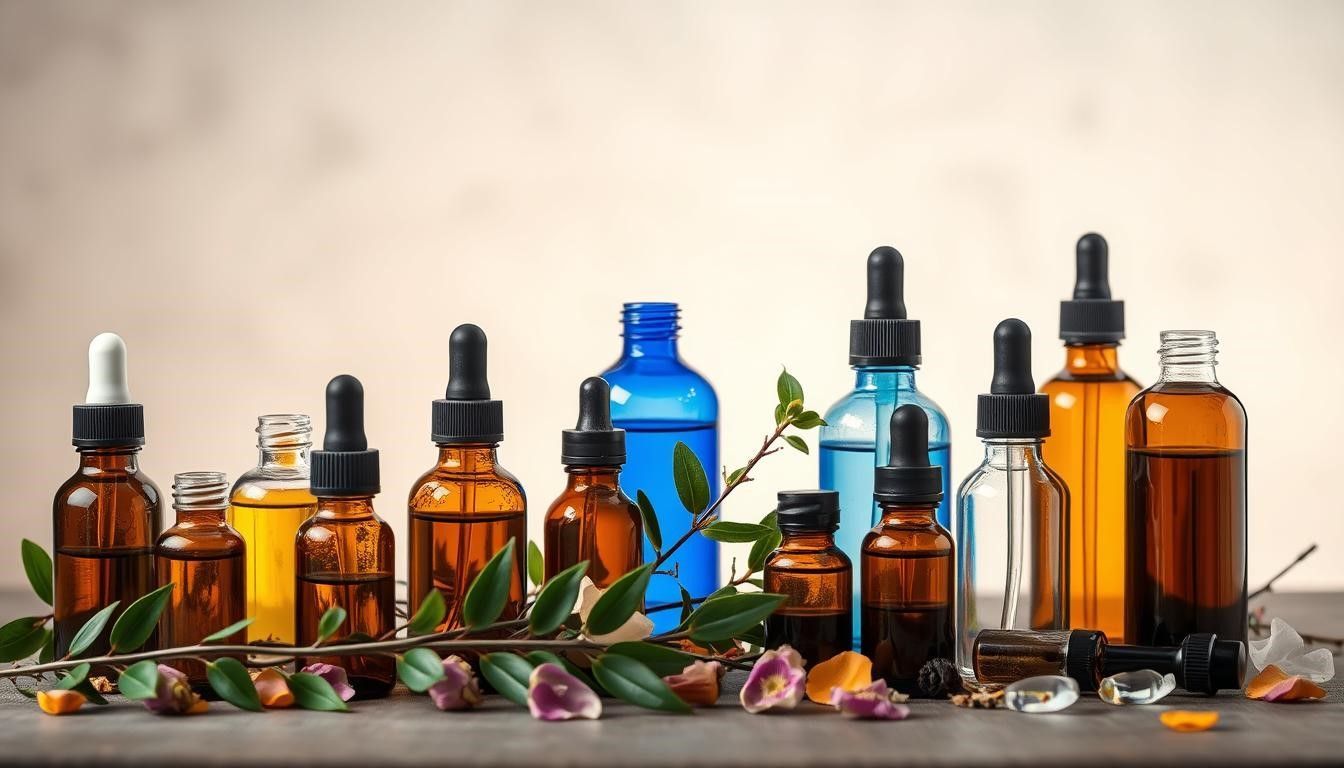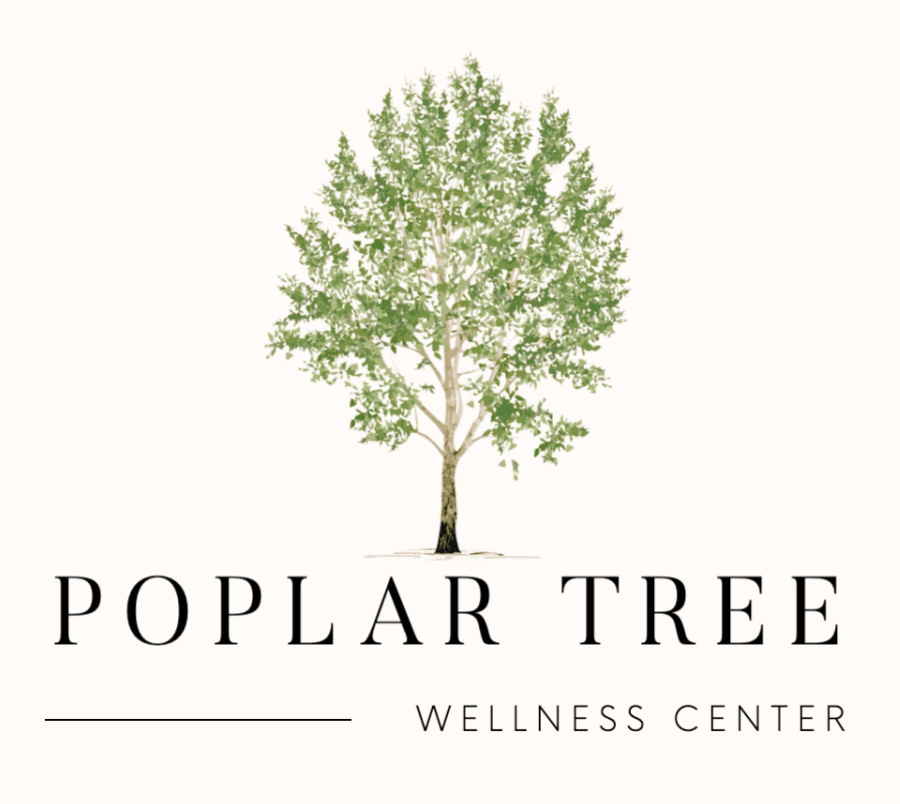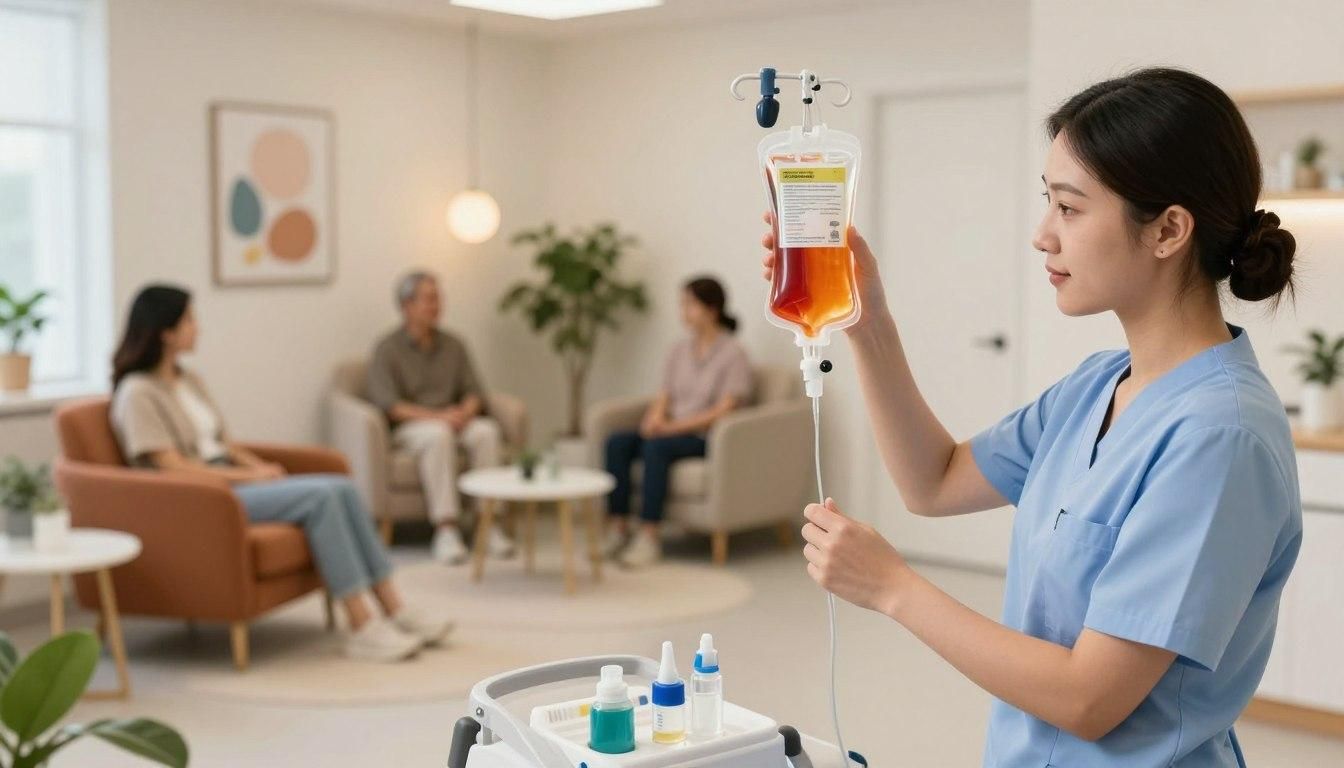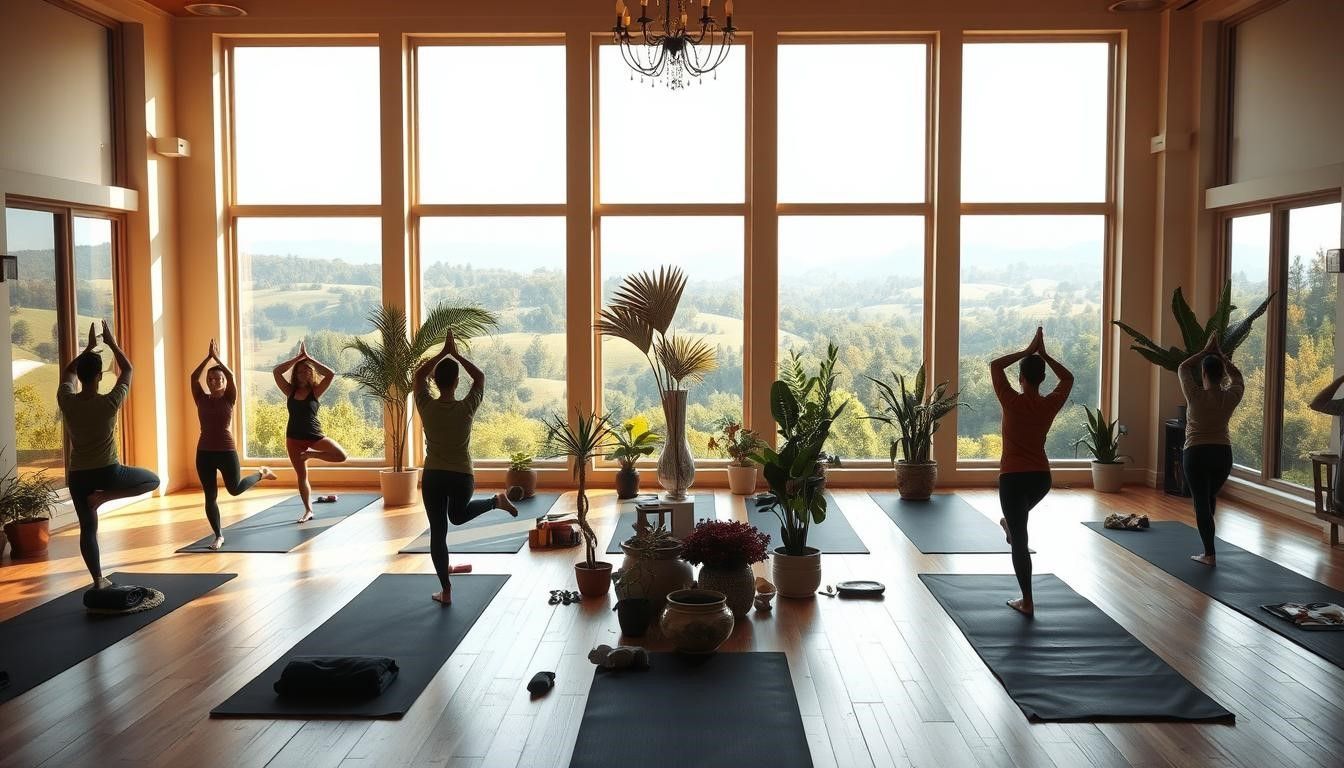How to Choose the Right Essential Oils for Aromatherapy
Essential oils have become increasingly popular
for their therapeutic benefits and pleasant aromas, making them a valuable addition to many wellness routines. At centers like Poplar Tree Wellness Center, experts collaborate to implement innovative treatments, including the use of concentrated plant extracts.

Dr. Lin explains that plants are made of structural materials and phytochemicals, which have properties beneficial to humans. It takes a significant amount of plant material to produce essential oils, which can make some of them expensive. For instance, about 250 pounds of lavender flower are needed to make just 1 pound of lavender essential oil.
This comprehensive guide will help you navigate the world of
aromatherapy and choose the right
oil for your needs, ensuring you reap the
benefits of these potent extracts.
Key Takeaways
- Understand the basics of essential oils and their therapeutic benefits.
- Learn how to select high-quality essential oils for your specific needs.
- Discover the most effective essential oils for beginners.
- Explore the science behind aromatherapy and its benefits.
- Evaluate the quality of essential oils to ensure purity and effectiveness.
Understanding Essential Oils and Aromatherapy
To fully appreciate the benefits of aromatherapy, it's crucial to understand what essential oils are and how they work. Essential oils are highly concentrated plant extracts that have been used for centuries for their therapeutic properties.
What Are Essential Oils?
Essential oils are derived from various parts of plants, such as leaves, flowers, roots, and bark, through processes like steam distillation or cold pressing. These oils capture the plant's scent and flavor, or "essence," and are used in
aromatherapy for their potential
health benefits. Studies have shown that they may help boost mood, improve sleep, reduce anxiety and pain, and even kill bacteria, fungi, and viruses.
The Science Behind Aromatherapy
Aromatherapy works through two primary pathways: our sense of smell and topical absorption into the bloodstream. When we inhale
essential oil molecules, they travel to the olfactory receptors, which have a direct connection to the limbic system, influencing mood, memory, and autonomic nervous system responses. Research has demonstrated measurable physiological
effects from
essential oils, including changes in brain wave patterns, blood pressure, and stress hormone levels, validating traditional aromatherapy practices.
Benefits of Using Oil for Aromatherapy
Aromatherapy with essential oils provides a natural and complementary method for enhancing physical and mental health. At Poplar Tree Wellness Center, we recognize the value of aromatherapy as a complementary therapy to traditional treatments, such as FDA-approved interventions for depression.
Physical Health Benefits
The physical health benefits of essential oils are diverse and well-documented. Essential oils can help improve sleep quality, reduce pain, and alleviate nausea. Certain essential oils, such as eucalyptus and peppermint, have anti-inflammatory properties that can help reduce inflammation. Moreover, some essential oils have antimicrobial effects, capable of killing bacteria, fungi, and viruses.
For instance, tea tree oil is renowned for its antiseptic properties, making it an excellent addition to skincare routines. By incorporating essential oils into your health regimen, you can potentially enhance your overall physical well-being.
Mental and Emotional Benefits
The mental and emotional benefits of essential oils are particularly noteworthy. Many essential oils have been shown to reduce stress and anxiety, improve mood, and promote emotional balance. Citrus oils like lemon and bergamot are known for their uplifting effects, helping to combat feelings of depression.
Oils such as lavender and chamomile can promote relaxation and improve sleep quality, while rosemary and peppermint can enhance focus and mental clarity. By leveraging these essential oils, individuals can better manage stress and improve their overall mental health.
At our wellness center, we integrate aromatherapy into comprehensive treatment plans, offering a holistic approach to mental health care. This includes using essential oils in conjunction with traditional therapies and FDA-approved treatments like Spravato intranasal spray and NeuroStar TMS.
Top 10 Essential Oils for Beginners
Discovering the best essential oils for beginners is the first step towards a rewarding aromatherapy experience. With so many options available, it's essential to start with the most versatile and beneficial oils.
Lavender: The Versatile Calming Oil
Lavender oil is renowned for its calming properties, making it ideal for promoting relaxation and improving sleep quality. Its gentle nature also makes it suitable for skin care.
Peppermint: For Energy and Focus
Peppermint oil is invigorating and refreshing, known to boost energy and enhance mental clarity. It's also beneficial for digestive issues.
Tea Tree: The Natural Antiseptic
Tea tree oil is valued for its antiseptic properties, making it effective against acne, minor cuts, and fungal infections.
Lemon: For Mood and Cleaning
Lemon oil has a uplifting effect on mood and is also used for its cleansing properties, making it a popular choice for household cleaning.
Eucalyptus: For Respiratory Support
Eucalyptus oil is known for its decongestant properties, providing relief from respiratory issues such as colds and coughs.
Frankincense: For Meditation and Skin Care
Frankincense oil is used in meditation for its grounding effects and is also beneficial for skin care, reducing the appearance of fine lines and wrinkles.
Rosemary: For Memory and Hair Health
Rosemary oil is known to improve memory and cognitive function. It's also used to promote hair growth and reduce dandruff.
Chamomile: For Relaxation and Sleep
Chamomile oil offers gentle calming properties, making it an excellent choice for promoting relaxation and improving sleep quality. It's also beneficial for soothing irritated skin and calming stress-related digestive issues.
These
essential oils are not only beneficial for their various health benefits but also for their ability to reduce
stress and promote a calming
aroma in any setting.
Specialized Essential Oils for Specific Needs
The world of essential oils offers a diverse range of solutions for various health concerns, from stress and anxiety to sleep disorders and fatigue. At Poplar Tree Wellness Center, our diverse, highly qualified, and caring staff of mental health professionals often recommend essential oils as a complementary approach to managing these concerns.
Oils for Stress and Anxiety Relief
Certain essential oils have a calming effect on the mind and body, helping to alleviate stress and anxiety.
Lavender oil is particularly renowned for its calming properties, promoting relaxation and reducing anxiety levels. Other beneficial oils include
bergamot and
ylang-ylang, which are known for their soothing effects on the nervous system.
Oils for Better Sleep
Aromatherapy can be a valuable tool for improving sleep quality. Essential oils like
chamomile and
vetiver are known for their sedative properties, helping to promote a restful night's sleep. By incorporating these oils into a bedtime routine, individuals can create a relaxing atmosphere conducive to sleep.
Oils for Energy and Focus
When energy levels flag or concentration wavers, certain essential oils can provide natural stimulation to the brain and nervous system. Peppermint oil, with its invigorating aroma, is known to ease headaches, fight fatigue, and support digestion. Other energizing oils include rosemary and grapefruit, which can help improve mental clarity and focus.
Rosemary essential oil stands out for its ability to improve memory and cognitive processing. Citrus oils like grapefruit provide immediate mental refreshment through their bright, clean aroma, stimulating the brain's production of serotonin and dopamine.
By understanding the specific benefits of various essential oils, individuals can harness their therapeutic properties to address a range of health concerns. Whether it's stress, sleep, or energy, there's an essential oil that can help.
How to Evaluate Essential Oil Quality
High-quality essential oils are the foundation of effective aromatherapy, but what makes an oil high-quality? Evaluating the quality of
essential oils is crucial for ensuring their effectiveness and safety in various applications.
Understanding Purity and Grades
The purity and grade of oils significantly impact their therapeutic properties. Third-party GCMS testing confirms the exact chemical composition and purity of each oil, providing reliable data to create precise and effective therapeutic blends.
Organic vs. Non-Organic Oils
The distinction between organic and non-organic
oils lies in their production methods. Organic
oils are derived from plants grown without synthetic pesticides or fertilizers, potentially offering a cleaner product.
Reading Labels and Certifications
To ensure you're purchasing high-quality products, it's essential to understand label claims and certifications. Key factors include:
- Full botanical name for accurate identification
- Country of origin and extraction method
- Third-party testing information, such as GC/MS analysis
- Certifications like USDA Organic or Non-GMO Project Verified
By paying attention to these details, you can make informed decisions when selecting
essential oils for your needs.
Methods of Using Essential Oils
The versatility of essential oils allows them to be used in a variety of applications, from relaxation to energy enhancement. To get the most out of these oils, it's essential to understand the different methods of using them. Whether you're looking to improve your mood, alleviate stress, or simply enjoy a pleasant aroma, there's an appropriate method for you.
Diffusion Methods
Diffusion is a popular method for using essential oils, as it disperses the oil particles into the air, allowing you to inhale them.
Essential oil diffusers are devices designed to spread the aroma throughout a room, creating a calming or invigorating atmosphere. You can choose from various types of diffusers, including ultrasonic, nebulizing, and heat-based models.
Topical Application
Topical application involves applying essential oils directly to the skin, usually after diluting them with a carrier oil. This method allows the oil to be absorbed into the bloodstream, providing localized benefits. It's crucial to follow proper
dilution guidelines and perform patch tests to avoid skin irritation.
Inhalation Techniques
Inhalation is another effective way to use essential oils. Techniques include direct inhalation from the bottle, dry evaporation using a cotton ball, and steam inhalation with hot water. These methods allow you to experience the benefits of essential oils quickly, particularly for emotional and respiratory support.
- Direct inhalation techniques offer quick routes to experiencing essential oil benefits.
- Steam inhalation provides intensive respiratory support by combining warm steam with essential oils.
- Personal inhalers can be prepared with your favorite essential oils for on-the-go aromatherapy.
- A simple tissue or cotton ball with essential oil can serve as an effective personal inhaler.
- Remember that less is often more when using inhalation methods to avoid overwhelming your senses.
Creating Effective Essential Oil Blends
The art of blending essential oils involves combining oils in ways that maximize their therapeutic potential. By understanding how different oils interact, you can create blends that are more effective than using individual oils alone.
Understanding Top, Middle, and Base Notes
Essential oil blends are typically categorized into top, middle, and base notes, similar to perfumery. Top notes, such as citrus oils, provide an initial scent. Middle notes, like lavender, offer a soothing aroma, while base notes, such as cedarwood, ground the blend. A well-balanced blend incorporates oils from each category.
Complementary Scent Profiles
When creating blends, it's crucial to consider the scent profiles of the
oils. For instance, floral oils like rose and jasmine complement each other, while citrus oils like lemon and orange can enhance mood. Experimenting with different combinations can help you find the perfect blend for your needs.
Starter Blend Recipes
Here are a few simple recipes to get you started:
- "Peaceful Evening" blend: 3 drops lavender, 2 drops chamomile, and 1 drop cedarwood for a calming atmosphere.
- "Sunrise Boost" blend: 3 drops wild orange, 2 drops peppermint, and 1 drop rosemary for an energizing morning.
- "Stress-Away" roller blend: 5 drops lavender, 5 drops bergamot, 3 drops ylang-ylang, and 2 drops frankincense, mixed with a carrier oil, applied to pulse points.
By experimenting with differentdropsand ratios, you can tailor these blends to suit your preferences and needs.
Essential Oil Safety Guidelines
While essential oils offer numerous benefits, their safe use is paramount to prevent potential health risks. According to Dr. Lin, "Some essential oils can be harmful to the liver and nervous system when used in excess. Tea tree and eucalyptus oil have also been known to cause seizures," and are toxic for animals as well.
Dilution Guidelines
Proper dilution is key to avoiding
skin irritation, the most common adverse reaction to essential oils. It's recommended to dilute essential oils in a carrier oil before applying them to the skin. A general dilution ratio is 1-3% essential oil to carrier oil for most adults. Always perform a patch test before widespread application to check for any adverse reactions.
Precautions for Special Populations
Certain populations need to exercise extra caution when using essential oils. Pregnant women, children, and people with specific health conditions should consult a healthcare professional before using essential oils. Some oils, like citrus oils, can cause
photosensitivity, increasing the risk of sunburn or skin discoloration upon sun exposure.
Common Side Effects and How to Avoid Them
Common side effects of essential oil misuse include skin irritation, respiratory issues, headaches, and allergic reactions. To avoid these, use essential oils in a well-ventilated area, avoid applying them to sensitive areas, and start with small amounts.
Practicing intermittent diffusion and being mindful of the amount used can significantly reduce the risk of adverse effects.
By following these guidelines and being aware of the potential risks, you can safely enjoy the benefits of essential oils.
Storing and Maintaining Your Essential Oil Collection
The longevity and potency of your essential oils depend on how well you store and maintain them. Proper care ensures that these precious oils remain effective and safe to use over time.
Proper Storage Conditions
To maintain the quality of your
essential oils, it's crucial to store them in a cool, dark place, away from direct sunlight and heat sources. Using dark glass
bottles is recommended as they protect the
oils from light degradation. Ensure the
bottle caps are tightly sealed to prevent oxidation and contamination.
Shelf Life and Expiration
Different categories of oils have varying shelf lives. Here are some key points to consider:
- Citrus oils typically last 1-2 years due to their high limonene content, which oxidizes quickly.
- Most floral, herbaceous, and woody oils remain therapeutic for 2-3 years when stored properly.
- Resinous oils like frankincense and myrrh can improve with age and last 4-8 years or longer.
Dating your
bottles upon purchase and keeping notes on their original aroma can help you track their age and identify when they need replacement.
Integrating Aromatherapy into Your Wellness Routine at Poplar Tree Wellness Center
The expert team at Poplar Tree Wellness Center incorporates aromatherapy into personalized wellness routines, enhancing traditional mental health therapies. This holistic approach supports the center's commitment to innovative, evidence-based treatments.
Complementary Approaches to Mental Health
Aromatherapy is used as a complementary therapy to support mental health treatments. Essential oils such as lavender and chamomile can promote relaxation and reduce anxiety. The center's professionals guide patients in safe usage practices and potential interactions with medications.
- Personalized consultations to identify beneficial oils
- Guidance on effective methods of use, such as diffusion or topical application
Personalized Aromatherapy Consultations
Poplar Tree Wellness Center offers
personalized aromatherapy consultations where experts help patients choose the right
essential oils for their needs. Factors like health history and personal preferences are considered to create a tailored approach. To schedule a consultation, contact the center at
(201)-727-3241.
Conclusion
As we conclude our journey through the world of aromatherapy, it's clear that choosing the right essential oils is crucial for achieving your wellness goals. By understanding the unique properties of different oils and how they align with your specific needs, you can harness their benefits to support your journey toward optimal wellbeing. At Poplar Tree Wellness Center, we're committed to helping you integrate oil for aromatherapy into a comprehensive wellness approach that addresses both mental and physical health.
Investing in pure, properly sourced
oils ensures you receive the full therapeutic
benefits and avoid potential adverse effects. Start with versatile
essential oils like lavender, peppermint, and lemon, and gradually expand your collection. Our mission is to help you become the person you were meant to be.
Frequently Asked Questions About Choose the Right Essential Oils for Aromatherapy
What is the best way to use lavender essential oil?
Lavender essential oil can be used in a diffuser, added to bath water, or applied topically to the skin after being diluted with a carrier oil.
Can I use essential oils on children?
Yes, but with caution. Always dilute essential oils with a carrier oil and consult with a healthcare professional before using them on children, as their skin can be more sensitive.
What is the difference between organic and non-organic essential oils?
Organic essential oils are derived from plants grown without synthetic pesticides or fertilizers, whereas non-organic essential oils may be exposed to these chemicals during cultivation.
How do I know if my essential oil is of high quality?
Look for essential oils that are labeled with their Latin name, have a clear certification (such as GC/MS), and are stored in dark glass bottles to protect their potency.
Can essential oils be used for cleaning?
Yes, certain essential oils like lemon and tea tree have antimicrobial properties, making them effective for natural cleaning solutions.
How should I store my essential oil collection?
Store your essential oils in a cool, dark place, away from direct sunlight and heat sources, to preserve their quality and shelf life.
Can I ingest essential oils?
No, essential oils should not be ingested unless under the guidance of a qualified healthcare professional, as they can be toxic in large quantities.
What are the benefits of using a diffuser?
Using a diffuser can help to effectively disperse the aroma of essential oils into the air, promoting relaxation, improving mood, and supporting overall well-being.



